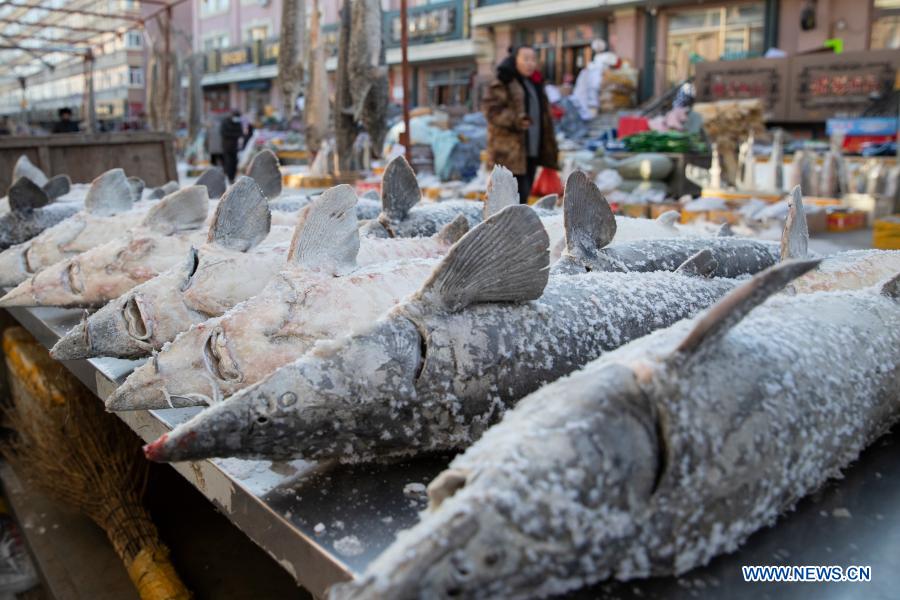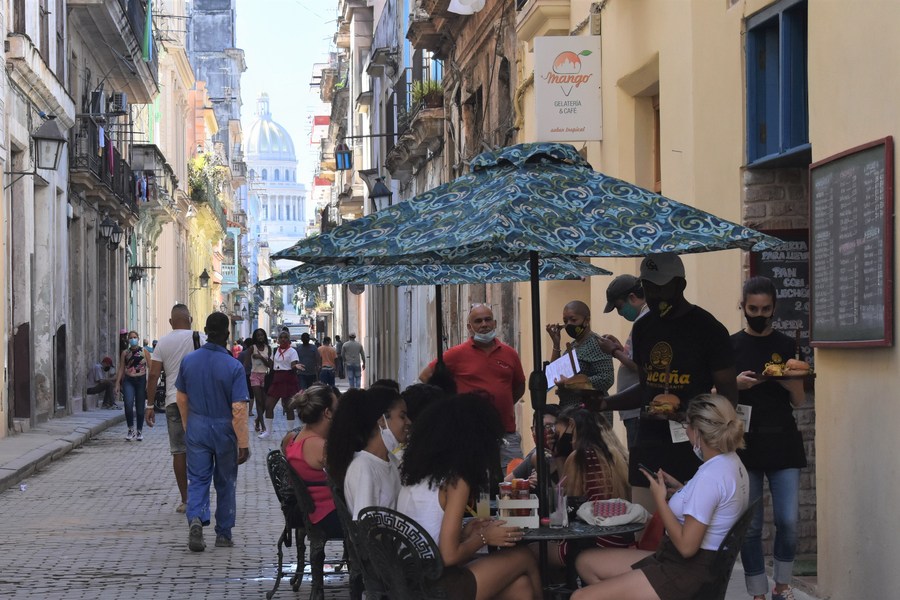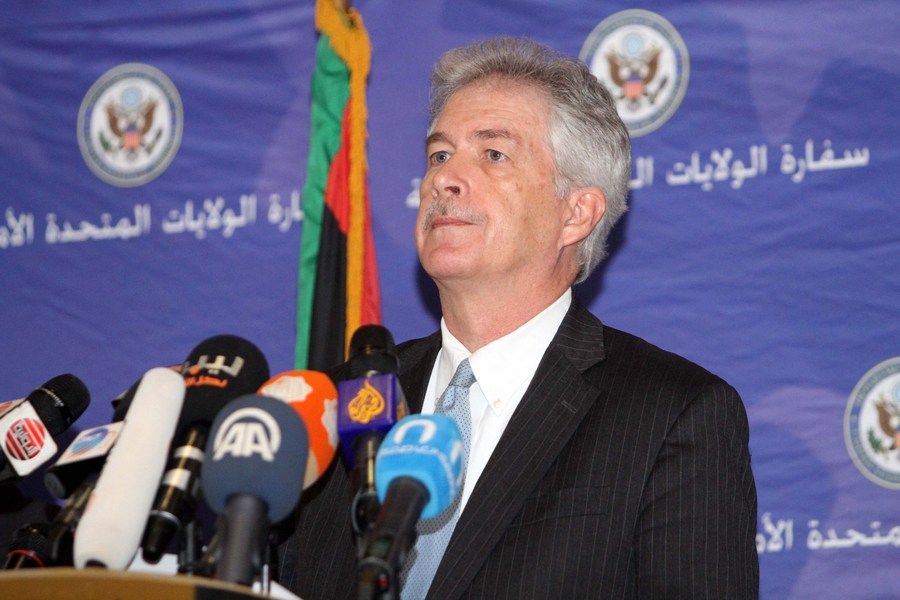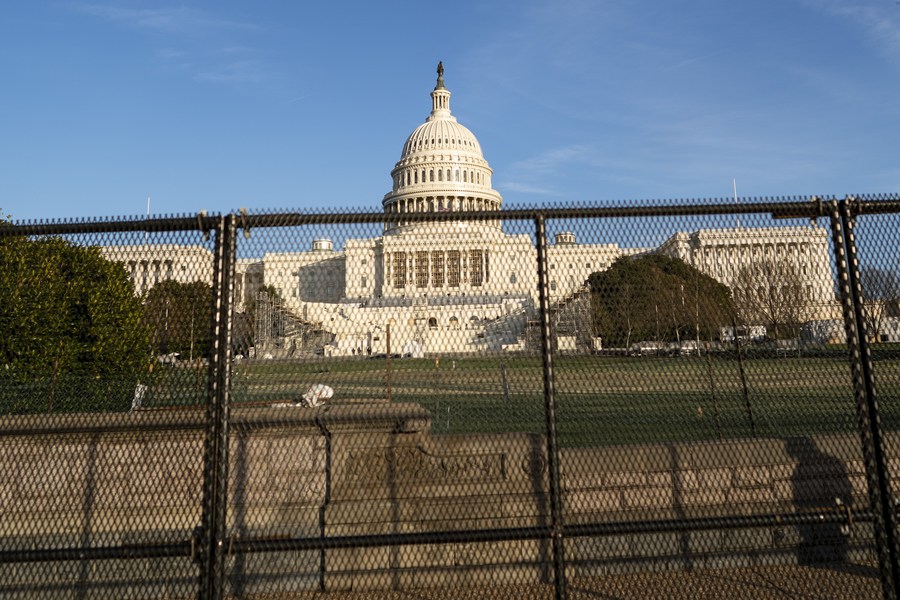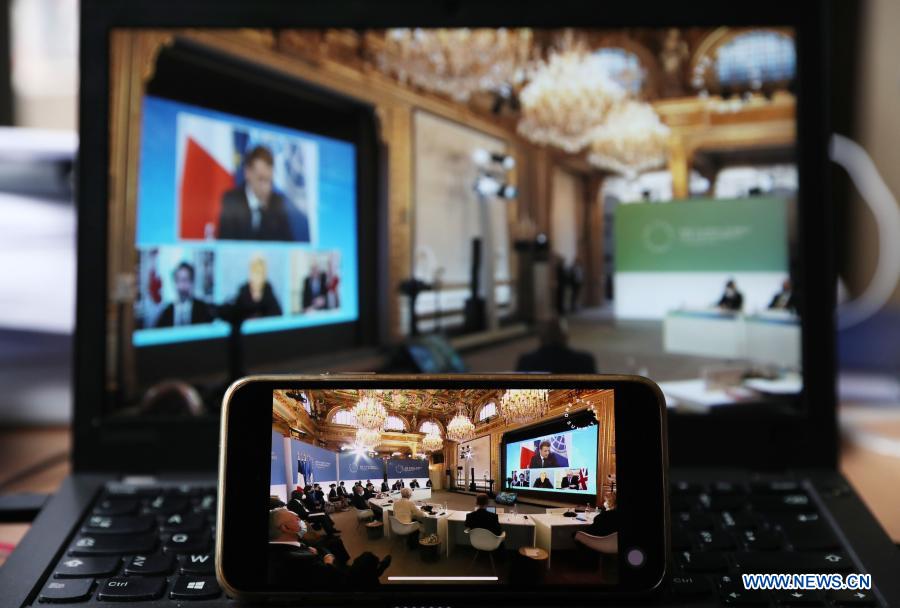
Photo taken in Paris, France, on Jan. 11, 2021 shows screens displaying leaders attending the One Planet Summit for biodiversity. World leaders on Monday reiterated the urgent need for concerted global action to safeguard biodiversity and for a global governance framework on climate issues in the post-pandemic era. Organized by the French government in partnership with the UN and the World Bank, the One Planet Summit brought together world leaders to commit action to protect and restore biodiversity. (Xinhua/Gao Jing)
PARIS, Jan. 11 -- World leaders on Monday reiterated the urgent need for concerted global action to safeguard biodiversity and for a global governance framework on climate issues in the post-pandemic era.
"We have been poisoning air, land and water -- and filling oceans with plastics," United Nations Secretary-General Antonio Guterres said, while addressing world leaders at the One Planet Summit for biodiversity.
Organized by the French government in partnership with the UN and the World Bank, the One Planet Summit brought together world leaders to commit action to protect and restore biodiversity. Due to the coronavirus outbreak, the event was largely virtual.
"EVERYONE MUST DO MUCH MORE"
"Now, nature is striking back. ... And we are extremely fragile. Meanwhile, COVID-19 has taken more than 1.8 million lives and devastated economies," Guterres said. "As we rebuild, we cannot revert to the old normal."
Pandemic recovery is mankind's chance to change course with smart policies and the right investments. Biodiversity innovations in energy and transport can lead to sustainable recovery and economic and social transformation, said Guterres.
But the global community has not met any of its biodiversity targets set for 2020, and biodiversity is facing a financing gap of 711 billion U.S. dollars per year until 2030, the UN chief said.
"Our meeting in Kunming, the COP in China this year (the 15th meeting of the Conference of the Parties to the Convention on Biological Diversity, or COP15), is a vital step in establishing a post-2020 global framework for biodiversity and stopping the extinction crisis," he said.
On climate change, Guterres regretted that today's adaptation efforts account for only 20 percent of climate finance, while only 14 percent of climate finance is dedicated to the least developed countries.
"Everyone must do much more. COP26 cannot be another missed opportunity," he said, referring to the 26th UN Climate Change Conference set to take place in Glasgow, Scotland, in November.
"DEVELOPING COUNTRIES NEED SUPPORT"
Apart from Guterres, about 30 world leaders and politicians had also joined the event via video connection, including Chinese Vice Premier Han Zheng, German Chancellor Angela Merkel, European Commission President Ursula von der Leyen, British Prime Minister Boris Johnson, World Health Organization (WHO) Director-General Tedros Adhanom Ghebreyesus, and World Bank Group President David Malpass.
Malpass said the developing countries must be supported to draw up long-term strategies for low-carbon and climate-resilient economies to end their reliance on coal and address biodiversity loss.
The World Bank Group has announced an ambitious target that an average 35 percent of its financing portfolio should have climate co-benefits over the next five years, he said.
Malpass pledged to continue working together with the private sector, civil society, governments and institutions to help developing countries address climate change and adapt to its mounting impacts.
For her part, Merkel said that Germany plans to put 30 percent of land and sea areas under protection by 2030, and called on other countries to do likewise. The commitment sees Germany join over 50 countries in the High Ambition Coalition for Nature and People (HAC), launched by France, according to German news agency dpa.
Merkel also appealed to the global community to stop destroying forests, saying that protecting forests meant protecting people's health, dpa reported.
French President Emmanuel Macron, in his closing remarks, said that nations worldwide had pledged to spend some 14.3 billion U.S. dollars to tackle the climate crisis and environmental degradation at the One Planet Summit.
The sum is to be spent on the Great Green Wall project to plant trees in the Sahel region in Africa, he said.
Launched in 2007, it aims at greening the Sahel, the arid savanna on the south border of the Sahara Desert in Africa, with trees planted over a total distance of 8,000 kilometers crossing eleven African countries.
"Africa has a huge number of solutions in hand and our role is to help it so as to help us too," Macron said.

